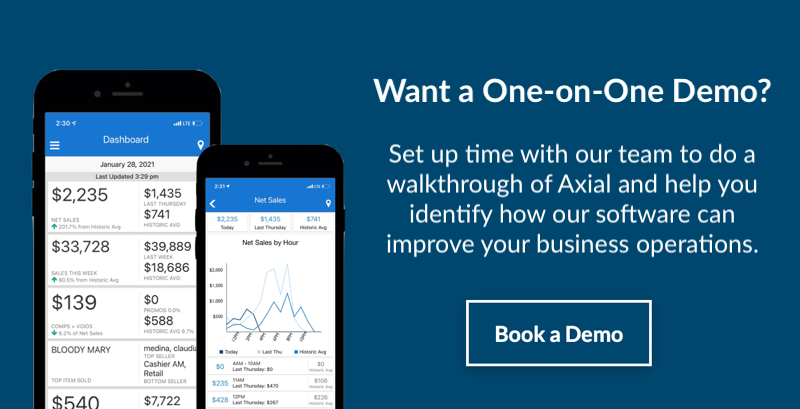It’s human nature for people to respond to pressure points.
In restaurants, this plays out in how managers divide their time between scheduling, supervising the dining experience, and more. It’s a constant balancing act.
One-on-one conversations with employees are typically less urgent than other tasks that demand managers’ attention, so it’s rare for service staff to receive consistent and constructive feedback.
Beyond that, managers typically lack objective data to aid them in coaching employees. As a result, many encounters between managers and service staff feel subjective. You can understand how this can impact the culture of working in a restaurant.
Using Restaurant Data To Remove Subjectivity From Conversations
We often hear from service staff that the best feedback they receive is from measuring their tips.
This is definitely one way to gauge performance, but tips don’t provide a lot of context and they don’t offer insights into a server’s total contributions.
To shift the dynamics between managers and service staff, it requires more data than simply tip totals. The more quantifiable information available to restaurant staff, the more likely it will stimulate a positive encounter. We’re talking about metrics like average check size, sales per hour, and total sales, among others.
When both managers and service staff are discussing performance data, it means their conservations are less based on squishy, anecdotal feedback.
This is how top-performing restaurants are creating a positive feedback chain among their employees, and it’s hard to overstate the psychological impact this has.
To start a free trial, to schedule a demo, or to learn more, register at https://app.axialcommerce.com/register or contact us by clicking here.





